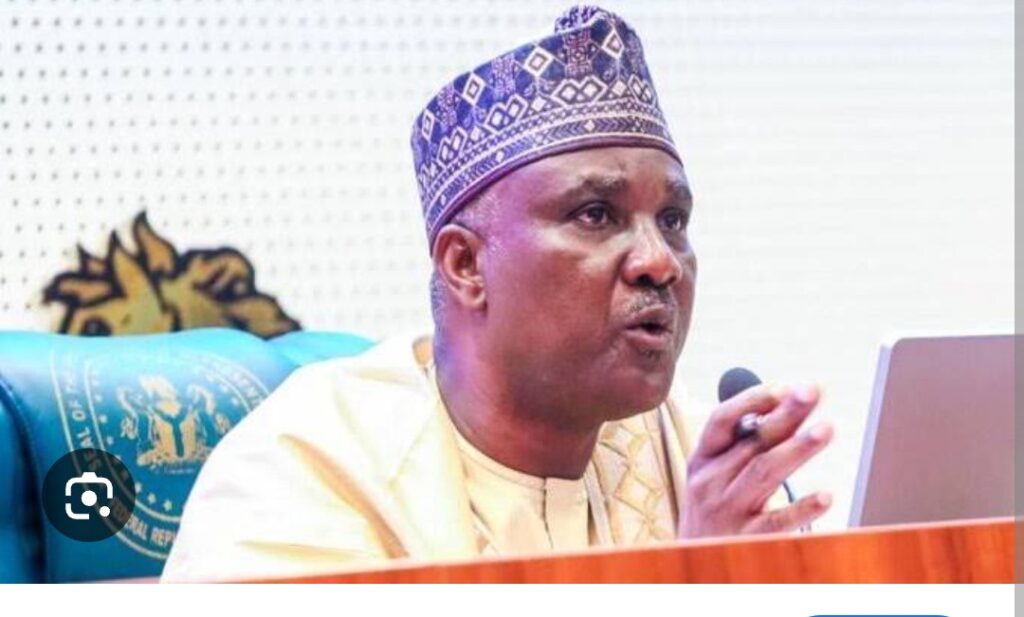Speaker of the House of Representatives, Hon. Tajudeen Abbas, underscored the critical need for the establishment of additional polytechnics.
His remarks came during a public hearing organized on Wednesday by the House Committee on Federal Polytechnics and Higher Technical Education, chaired by Hon. Kayode Laguda.
Hon. Abbas emphasized that these new institutions would significantly boost the quality of education in science, skills, arts, technical, and vocational training across the nation.
The hearing focused on two key bills aimed at establishing the National Polytechnic Commission, the Federal Vocational and Entrepreneurship Institute in Okota/Oshodi, Lagos State, and the Federal Vocational and Skills Acquisition College in Yankaba, Kano State.
“These initiatives are not merely legislative proposals; they represent a commitment to our nation’s future—a future where education serves as a cornerstone for economic growth, social mobility, and national development,” Abbas declared.
He highlighted that the establishment of these institutions would make quality education in various fields accessible to all Nigerians, aligning with the legislative agenda to enhance the educational framework in the country.
Abbas further noted the imperative of equipping the youth with relevant skills and knowledge to thrive in a competitive global environment.
He stressed that the proposed agency and institutions would provide qualitative education that meets international standards while addressing local needs.
“The National Polytechnic Commission will serve as a regulatory body to ensure standards are upheld across polytechnics nationwide, promoting uniformity and excellence within our polytechnic system,” he added.
Hon. Kayode Laguda, Chairman of the House Committee on Federal Polytechnics and Higher Technical Education, echoed Abbas’s sentiments.
He emphasized that the bills are designed to enact laws that will foster socio-economic development and promote sustainable human capital development in Nigeria. Laguda highlighted the importance of vocational, entrepreneurship, and skills acquisition institutions in training technicians and middle-level personnel, which are crucial for rapid industrialization and real-sector development.
Other stakeholders at the hearing, including Dr. Nasir Sani-Gwarzo, Permanent Secretary of the Federal Ministry of Education, expressed overwhelming support for the proposed institutions, noting their timeliness and relevance. Professor Idris Bugaje, Executive Secretary of the National Board of Technical Education (NBTE), also supported the establishment of the National Polytechnic Commission, which he said would oversee, regulate, and coordinate polytechnics in Nigeria. Bugaje pointed out that despite overseeing over 700 institutions, funding remains inadequate.
Comrade Shammah Kpanja, National President of the Academic Staff Union of Polytechnics (ASUP), stressed that the establishment of the commission is crucial for Nigeria’s educational and economic goals.
He noted that the lack of a dedicated commission has hindered polytechnics from fully realizing their mandates. Kpanja added that a regulatory framework promoting quality education, industry-relevant skills, research, and innovation is essential for the nation’s advancement.
Professor Aliyu Mamman, Chairman of the Conference of Federal Polytechnics in Nigeria, lamented the absence of a scheme of service for the nation’s polytechnics, which has caused sectoral challenges. He maintained that the proposed commission is long overdue and called for several amendments to the bill, including replacing a representative of Finance with Industry and adding representatives from the Manufacturers Association of Nigeria (MAN) and Sector Skill Councils.
